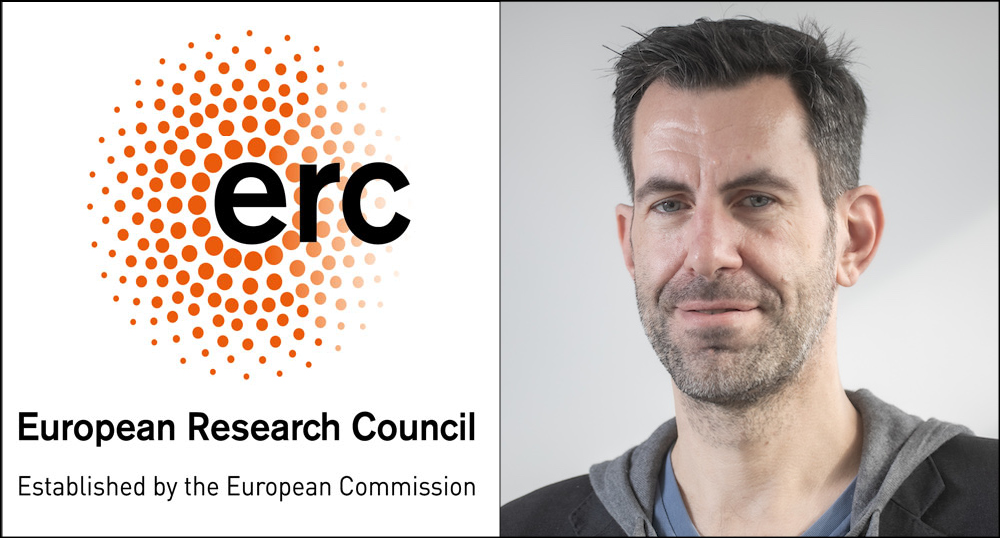MATH+ Member Marc Alexa Received ERC Advanced Grant

Photo credit: Christian Kielmann | Logo credit: ERC
Marc Alexa, Professor of Computer Science at Technische Universität Berlin and MATH+ member, has been awarded an ERC Advanced Grant for his research project EMERGE (Geometry Processing as Inference). Congratulations! The European Research Council will finance the project with 2.5 million euros over the next five years. They exclusively fund groundbreaking, innovative and pioneering basic research. The applicants’ scientific excellence and the projects are the sole selection criterion.
“The achievements and successes associated with such an award cannot be attributed to just one person alone. I would like to sincerely thank all the people who have supported me and those who have worked together with me in obtaining this wonderful acknowledgement ,” Alexa commented on his ERC Grant. He has been Chair of Computer Graphics at TU Berlin since 2005. After receiving his PhD from TU Darmstadt, he conducted research at Georgia Tech, Caltech, Carnegie Mellon University, ETH Zurich, and the University of Toronto. His work on computer graphics and geometry processing has been funded and awarded many times, including by Apple, the Berlin-Brandenburg Academy of Sciences, the German Research Foundation with the Meier Leibnitz Prize, and Walt Disney Animation Studios.
Digital processing and data analysis play a central role in current global challenges such as climate change, pandemics, population growth, or energy supply. Methods for “Big Data” and machine intelligence algorithms are quite popular. Any development in these areas also directly benefits the understanding and possible solutions for relevant practical problems. “But we shouldn’t be pushing our research fields in terms of only applying machine learning methods. We should develop our own methods to ensure a fruitful exchange in both directions. We can also contribute to and enrich the machine learning field with our research methods and transfer amazing knowledge”, Alexa emphasized. That would be an essential aspect and basic idea of his research.
Geometry processing deals specifically with the processing and analyzing of three-dimensional data, i.e., digital models of things surrounding us. It is also a success story because of its efficiency, and nowadays there is virtually no field in which three-dimensional objects are not digitally modeled and analyzed: from cars to teeth, from architecture to zoology. Accurate three-dimensional models consist of large amounts of data that must be processed in many applications in fractions of a second.
The project EMERGE (Geometry Processing as Inference) aims to use the methods of geometry processing also for the processing of higher-dimensional structures. The hope and central thesis of the project is that the refinement of methods in geometry processing over the last decades will still be successful when extended to higher dimensions and exploit potentials that are complementary to developments in machine intelligence and classical digital signal processing. Thus, the methods for three-dimensional data will become more general analysis tools that can also be applied to problems in medicine, for example. The necessary extensions to algorithms and data structures are fundamental and are the central research topic of “EMERGE”. In particular, the question is in which dimension of the data which methods can best be implemented on today’s common computer infrastructure.
Concrete application scenarios arise from the modeling of so-called shape spaces: here, three-dimensional objects are represented as points in a high-dimensional space. The change in shape is then a curve in this space. For example, human motion sequences or the degeneration of organs can be represented from sensor data (ultrasound, MRI). The project EMERGE is expected to produce methods that will enable better analysis of these data, ultimately enabling better prediction of disease progression and therapeutic success.
Press release of TU Berlin (in German)

